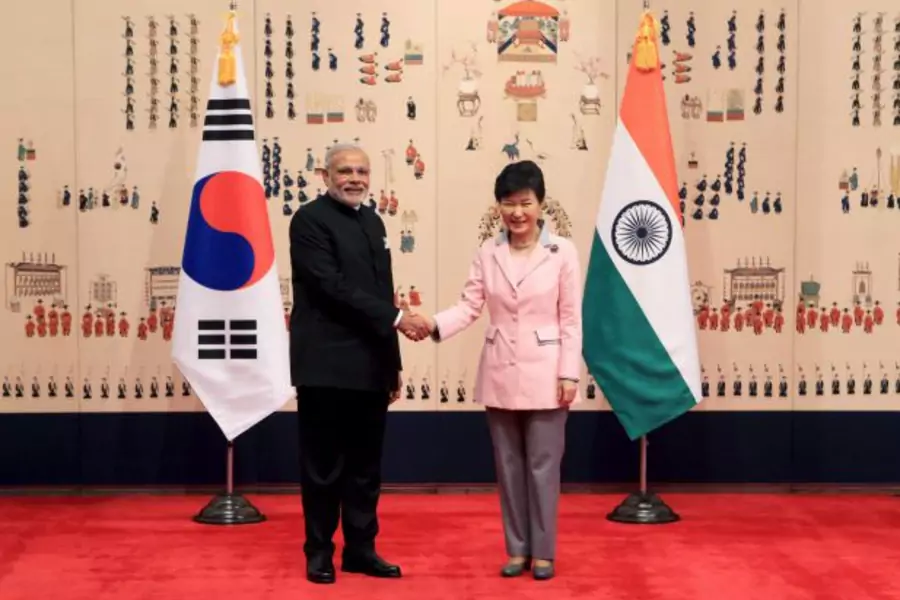More on:
Yonsei University Professor Chung Min Lee has described prospects for relations between South Korea and India as historically hampered by “geographic distance” and “mutual disinterest.” India was South Korea’s eighth largest export destination and only the twenty-second largest source of imports in 2014, with a total trade volume of $17.9 billion. Yet during Indian Prime Minister Narendra Modi’s visit to Seoul last May, he and South Korean President Park Geun-hye signed a Special Strategic Partnership agreement reflecting mutual aspirations for broad-based cooperation. Will the two countries’ parallel universes finally converge around a broader set of interests beyond their mutual concern with the Pakistan-North Korea nuclear proliferation axis?
Ambassador Kathleen Stephens, Ashley Tellis, and I explored prospects for South Korean-Indian relations and their implications for U.S. interests last week in a roundtable moderated by Korea Economic Institute Vice President Mark Tokola, the video of which is here. Ambassador Stephens combines recent official experience serving at high levels in both New Delhi and Seoul, having recently completed a special assignment as the Acting Ambassador to India before returning to Stanford University. Ashley provided the strategic context for understanding India’s foreign policy under Prime Minister Modi. I discussed how an improved South Korea-India relationship fits with Korean aspirations to play a middle-power role in international affairs.
There were a number of notable topics worth watching that emerged from the discussion:
- Prime Minister Modi’s interest in South Korea as an economic partner first manifested when he served as the governor of Gujarat, at which time he sought Korean investment in a number of sectors deemed essential to sustaining India’s economic growth. Currently, Modi is reaching out to foreign investors through his “Make in India” initiative. Among the sectors identified in the South Korea-India Special Partnership agreement are the steel industry, maritime transport, electronics, hardware manufacturing, and R&D cooperation in robotics, space, and material science. Many of these are priority sectors that fueled South Korean development under Park Chung-hee. South Korea could bring experience and present investment opportunities from which India seeks to benefit.
- The economic dimension of the India-South Korea relationship continues to overshadow the political dimension. The Indian prime minister’s meetings with CEOs of Korean conglomerates and efforts to promote economic cooperation appeared at least as important as the Park-Modi summit. In this respect, India’s Act East policy and South Korea’s Northeast Asia Peace and Cooperation Initiative do not yet intersect, and the political/security dimension of South Korea-India cooperation remains underdeveloped. South Korean “middle power” diplomacy seems confined to MIKTA (Mexico, Indonesia, Korea, Turkey, Australia), but relations with BRICS (Brazil, Russia, India, China, South Africa) appear underdeveloped, with China-South Korea relations being the notable exception.
- Washington has not yet shown much interest in developing South Korea-India-U.S. trilateralism, despite having shown modest interest in promoting U.S.-Japan-India trilateral relations. Ashley speculated that a “high politics” rationale for such cooperation remains absent, as neither India nor South Korea has an interest in pursuing a joint containment strategy toward China. Perhaps the United States should push harder to foster a broader long-term convergence among these three countries in strategic cooperation that focuses less on geostrategic concerns than on rule of law and maritime security in the Indo-Pacific, as well as to support aspects of the broader economic development agenda.
More on:
 Online Store
Online Store
